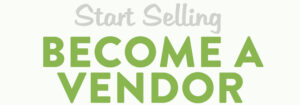World Bank to Supervise Nigeria’s underperforming $500 Million Electricity Loan
The World Bank plans to supervise Nigeria’s $500 million electricity loan from July 8 to 12, 2024, aimed at enhancing the country’s electricity distribution sector.
The Nigeria Distribution Sector Recovery Program was approved by the World Bank Board on February 4, 2021, and became effective on February 2, 2023.
According to the latest Implementation Status & Results Report for the loan project obtained from the World Bank, and in response to the persistent challenges and underwhelming progress of the Nigeria Distribution Sector Recovery Program (DISREP).
The program’s primary objective is to enhance the financial and technical performance of Nigeria’s electricity distribution companies (DISCOs).
This initiative is crucial for stabilizing and improving electricity supply across the nation, which has been plagued by inefficiencies and inadequate infrastructure.
The document read: The project was approved by the Board on February 4, 2021, and it became effective on February 2, 2023. DISREP was included in the external borrowing plan of Nigeria on May 15, 2024.
The Objective of the Project is to improve the financial and technical performance of the electricity distribution companies. A World Bank supervision mission will take place from July 8 to 12, 2024.
According to the report, the progress towards achieving the project objectives has been rated as “Moderately Unsatisfactory,” both in terms of overall implementation and specific project development outcomes.
Key performance indicators such as the reduction in DISCOs’ metering gap, semi-annual electricity billing, and the collection of billed electricity have shown slow or stagnant progress.
Despite the approval and effectiveness of the loan, the disbursement rate remains at 0%, with the entire $500 million still not disbursed.
The project aims to reduce the metering gap, enhance electricity billing and collection efficiency, and improve corporate governance within DISCOs.
However, as of the latest report, there has been no significant improvement in these areas.
For instance, the target to reduce the metering gap remains unmet, with a current gap reduction of 0%.
The report also shows that the Nigerian government has committed to awarding contracts for the supply and installation of 1.25 million smart meters by the end of June 2024.
This effort is expected to significantly improve metering accuracy and billing efficiency, addressing one of the critical areas of the project.
Recall that while campaigning for the presidency, Bola Tinubu released a manifesto outlining a plan to eliminate estimated billing and ensure that all Nigerian homes and businesses are equipped with prepaid meters.
However, under his administration, the number of estimated billing customers has seen the largest growth rate both quarterly and yearly, based on data from the NBS up to 2022.
The Nigeria Electricity Report by the National Bureau of Statistics (NBS) for the first quarter of 2024 shows a 10% quarter-on-quarter increase in estimated billing customers, as the metering gap widens. The number of customers on estimated billing rose from 5.83 million in Q4 2023 to 6.43 million in Q1 2024, marking a notable 10% increase.
About 52% (an increase from 48% recorded in the previous quarter) of the total DISCOs’ customers are on estimated billing this quarter.
This increase occurs amid the Federal Government’s plan to eliminate estimated billing by the end of 2024.
It further highlights a persistent issue within the Nigerian electricity sector, which is the inability to adequately meter all customers to bridge the metering gap despite various initiatives.
The post World Bank to Supervise Nigeria’s underperforming $500 Million Electricity Loan appeared first on Tech | Business | Economy.



